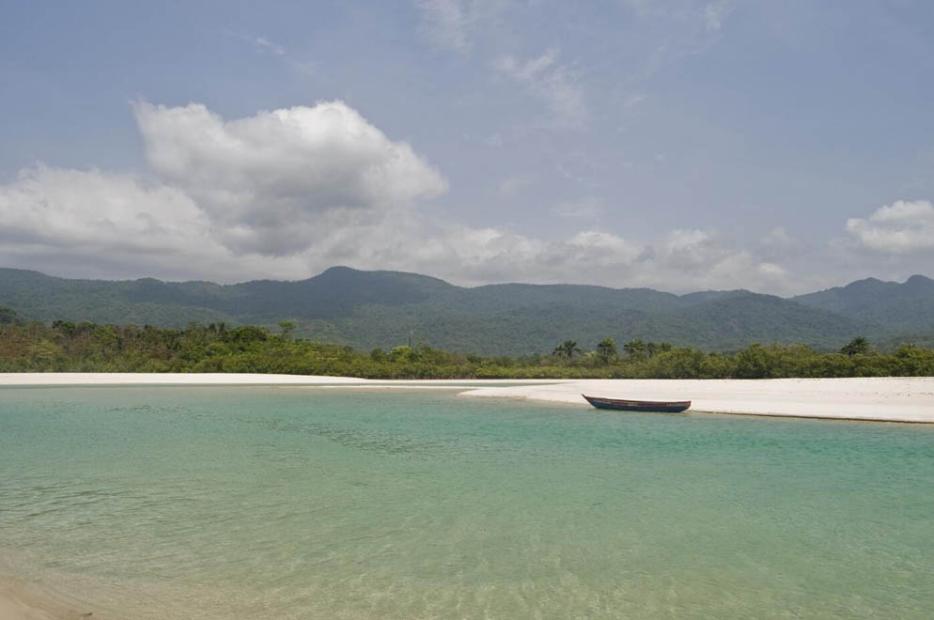I met a woman the other night who had been working for the Tourism Board in Sierra Leone. “It’s a beautiful country, with gorgeous beaches and mountains,” she said, “but it’s kind of hard to convince people to come there.” Sierra Leone is a beautiful tropical country, with rainforests and tawny grasslands and beaches on the Atlantic Ocean. It also had a horrific civil war between 1991 and 2002, resulting in millions dead and displaced. Not surprising that it’s still kind of a tough sell for carefree beach vacationers.
But for some tourists, the urge to frolic in the company of the pygmy hippopotamus is so overpowering that it’s worth the risk. A new study in The Journal of Travel Research by Galia Fuchs, Natan Uriely, and Arie Reichel from Israel’s Ben-Gurion University of the Negev, along with Darya maoz from Israel’s Center for Academic Studies, asks: what makes some tourists throw caution to the sultry winds?
Fuchs et al. decided to study Israeli nationals heading over the Egyptian border for a quick trip to the Sinai Peninsula—a territory with periodically renewed severe travel warnings. The Gulf of Aqaba has lovely resorts, but also semi-regular terrorist attacks specifically aimed at the tourism industry. The researchers gathered their initial data in 2004, five months after three bombs exploded in the major tourist destinations of Taba and Ras al-Shitan, killing 34 people and injuring 171. Despite their government’s warnings, Israelis were still flocking to the border and onward to the sandy beaches of the Red Sea.
The researchers studied the attitudes of 489 Israeli tourists by administering a questionnaire—they had the forethought to bring it down to the border and distribute it while people were bored out of their trees waiting in line, so they got a pretty sweet response rate. The surveyed tourists ranged in age from 18 to 67, with an average age of 29, and a gender split of 51.5 percent male and 48.1 percent female (of those who marked their gender).
First, tourists agreed or disagreed with straightforward questions about risk, like: “I or whoever is with me, will be injured by terror attacks in Sinai”; “The Egyptians will be hostile toward Israelis”; “My conduct might be seen in a negative manner by the locals.”
Then they answered a set of questions designed to get at why some people choose to ignore travel advisories and go to places they’ve been told are crazy dangerous. These included agreeing or disagreeing with statements like: “The risk of being injured in a terror attack in Sinai during holidays is higher than during regular days”; “The risk of being injured in a terror attack in Sinai in a hotel is higher than in a beach hut”; “Sinai is less dangerous than Israel.”
The main fear these intrepid tourists report is actually kind of sweet—they’re less worried that they will be attacked by terrorists than that their relatives and friends back home will worry that they’re being attacked by terrorists. The second biggest fear is a little snooty: that “The Egyptian proceedings won’t suffice in case of a terror attack (saving, evacuation, treatment, etc).” While they may not be worried about a terrorist attack, these tourists worry that if one did take place, Egyptian hotel owners, firefighters, ambulances, or police would bungle the rescue operations. Fear of actually being attacked by terrorists ranked seventh, after fear of long lines at the border and the Red Sea being too touristy. God forbid.
Of the rationalizations they gave for their decision to disregard the travel warning, the most popular was “The risk of being injured in a terror attack in Sinai during holidays is higher than during regular days.” Apparently they felt they had planned smart to avoid peak terrorism season. The second most-cited reason was “The Israeli media give the Israeli public a wrong and overly negative impression regarding the level of risk in Sinai.”
The main predictor of how worried people were about travelling to a potentially dangerous place? Their political leanings. People self-identifying as right-wing in their political views were more afraid of a terrorist attack than those identifying as left-wing.
However, in the course of finding this out, the researchers also discovered something unexpected about who exactly goes to Sinai. The researchers note that “the public image of most travelers to Sinai is of having a left-wing orientation, ‘peaceniks.’” People assume that only Israelis with left-leaning views about the Israeli-Arab conflict would visit Sinai at all. But the researchers found that almost half—40 percent—of the 489 travellers they polled described themselves as right-wing. So, right-leaning Israelis do visit Egypt—they’re just more scared when they get there.
Personally, the idea of Israelis voluntarily going somewhere even more dangerous than Israel is hard for me to wrap my mind around. I’m still waiting for Israel to calm down enough to maybe go visit there someday. I hear they have great beaches.






